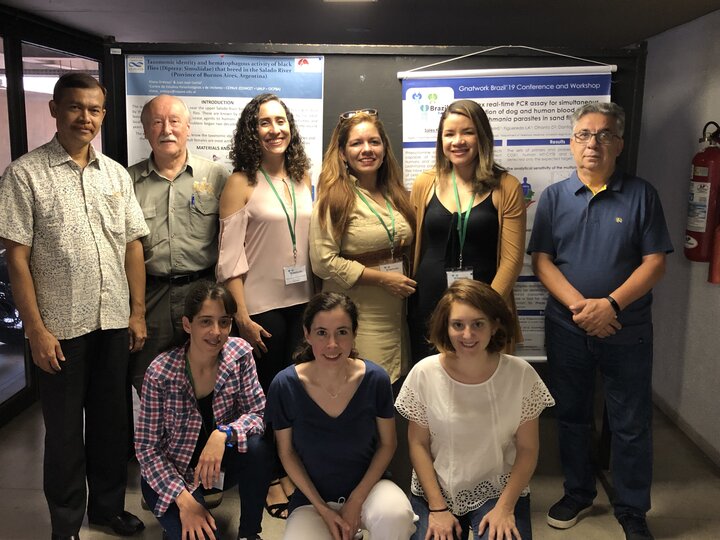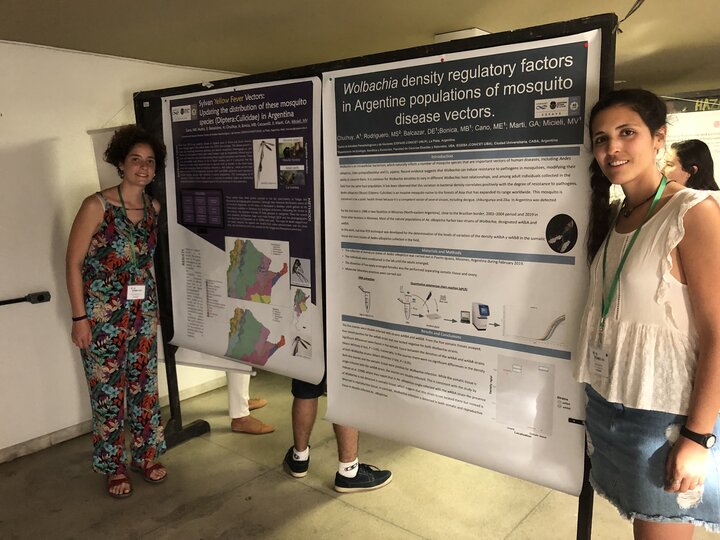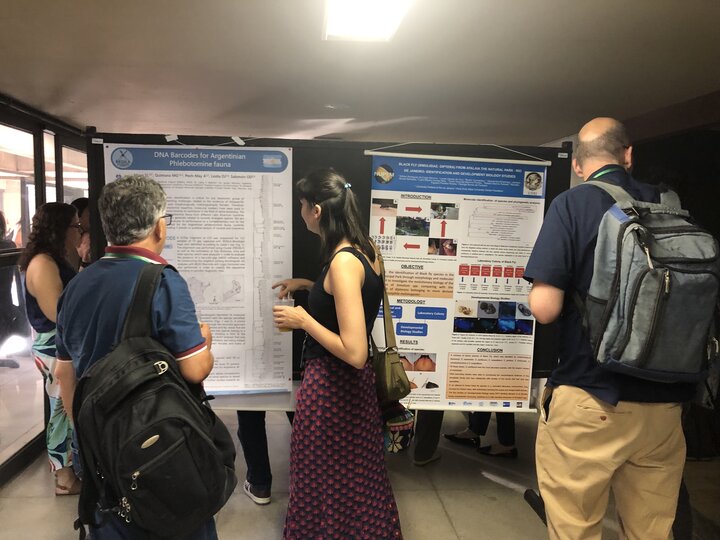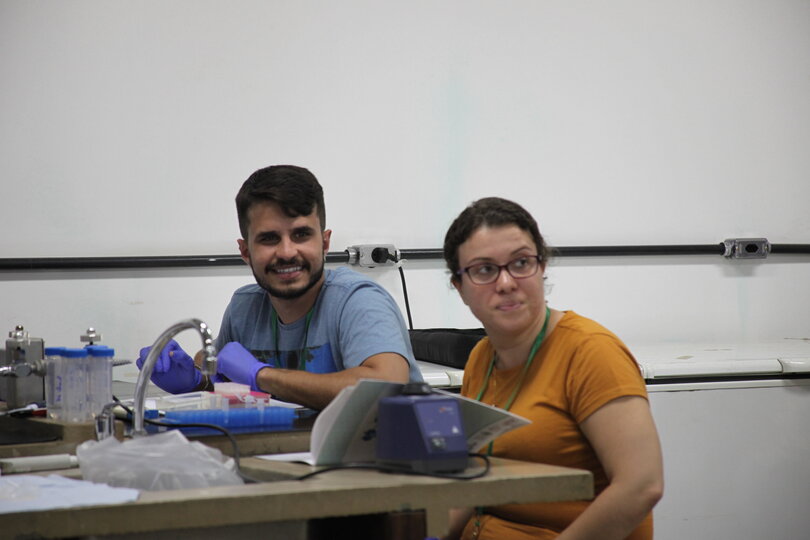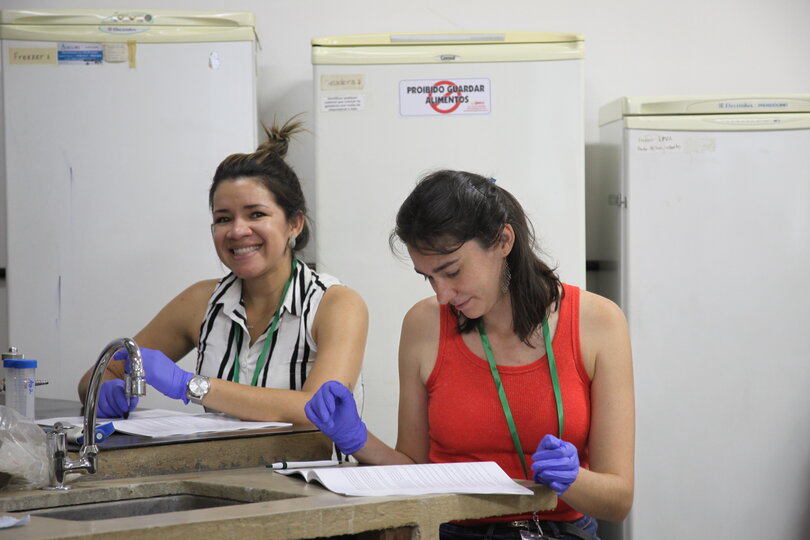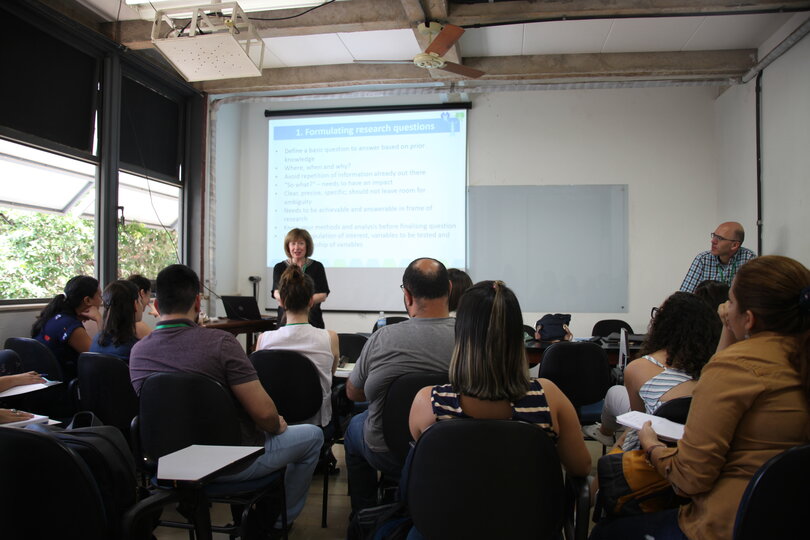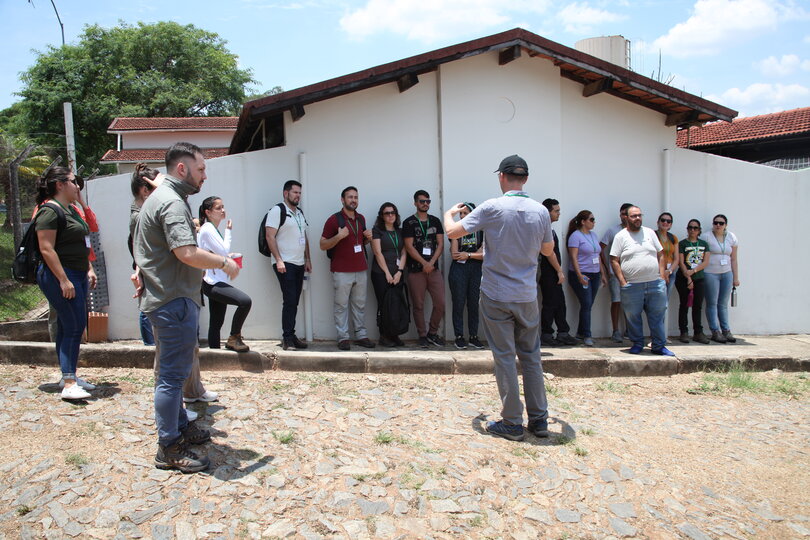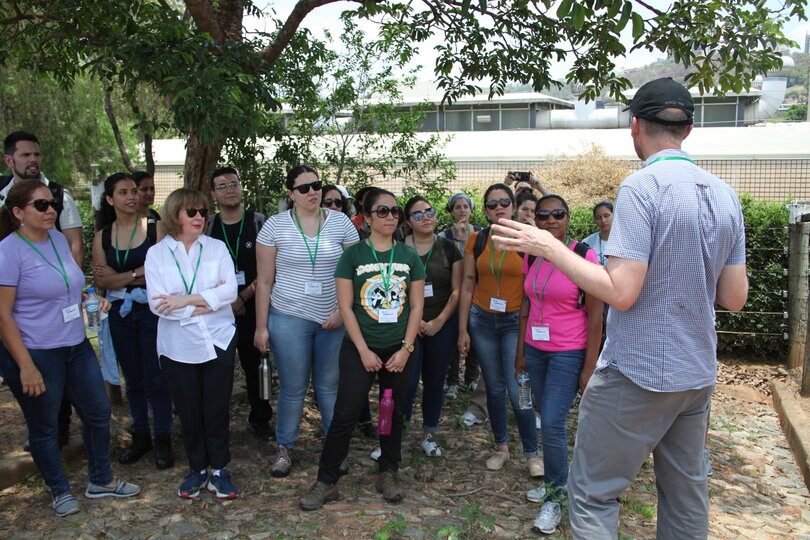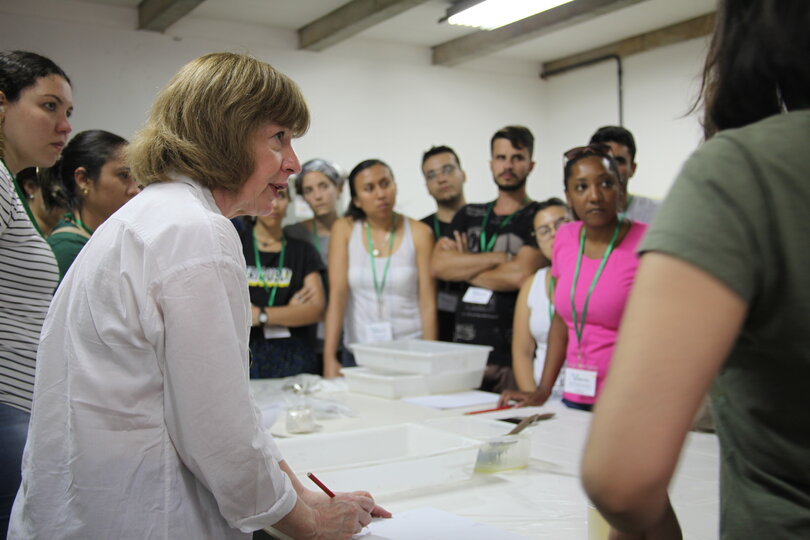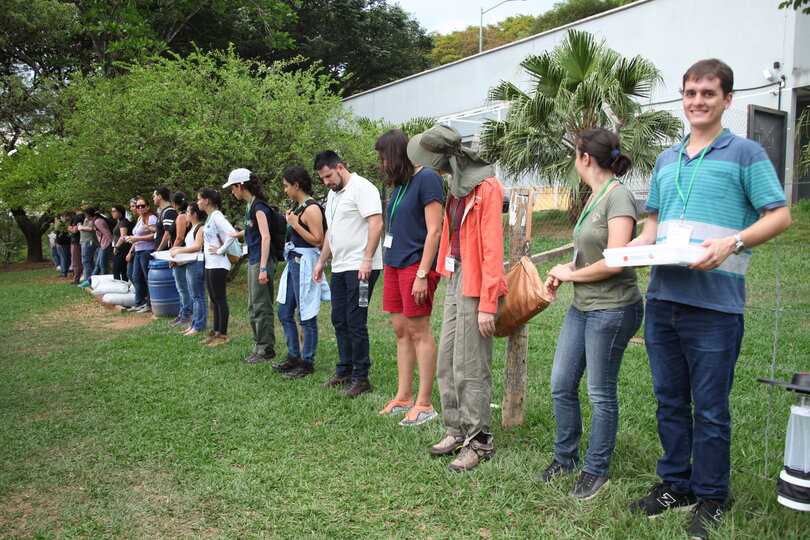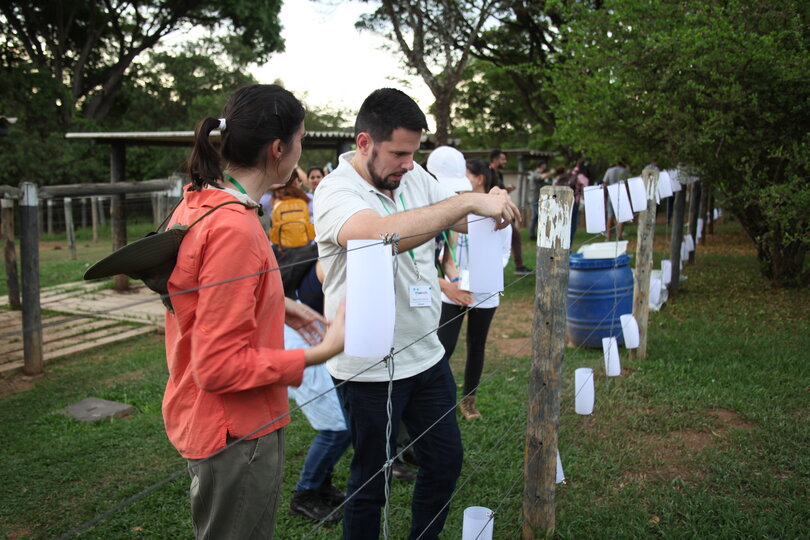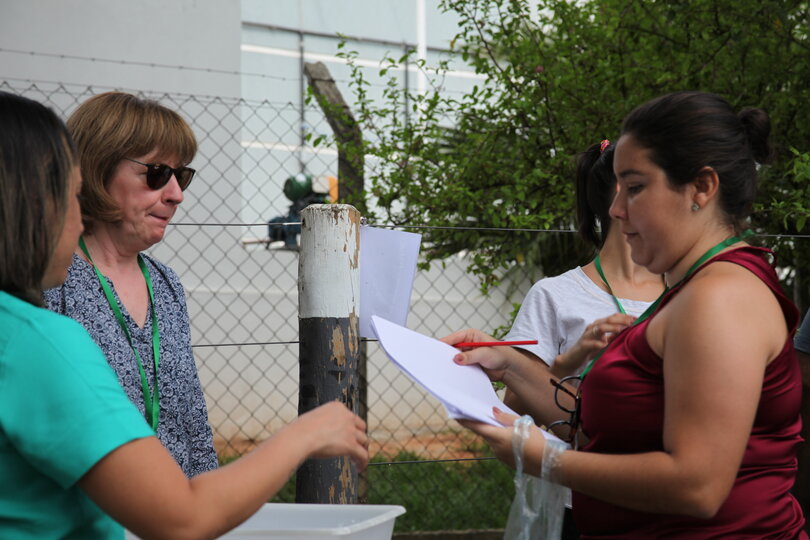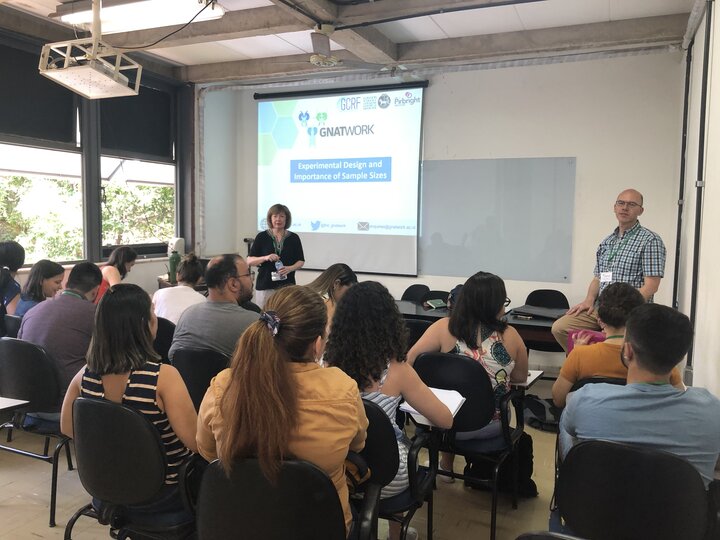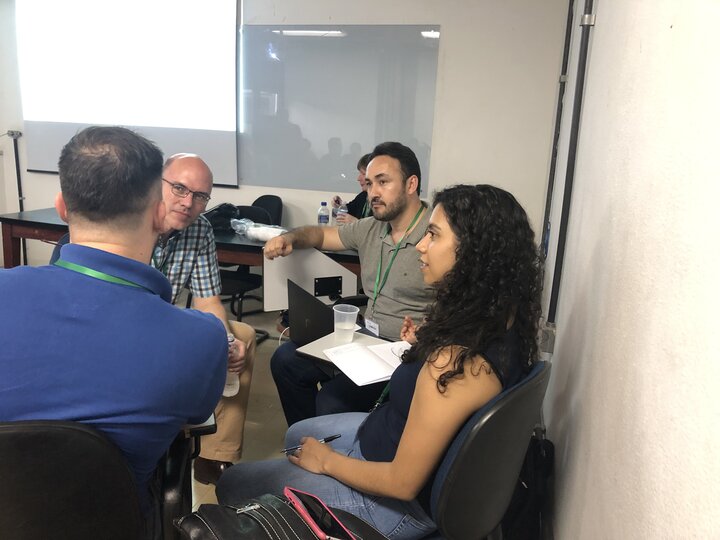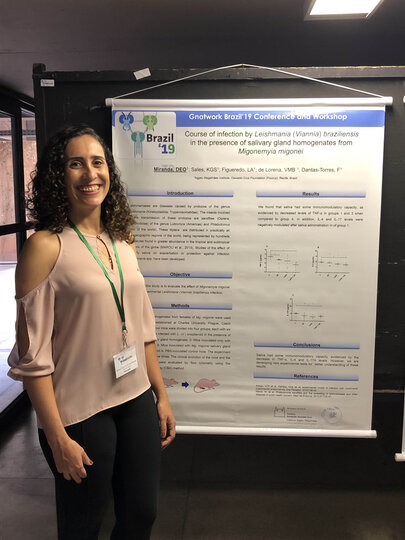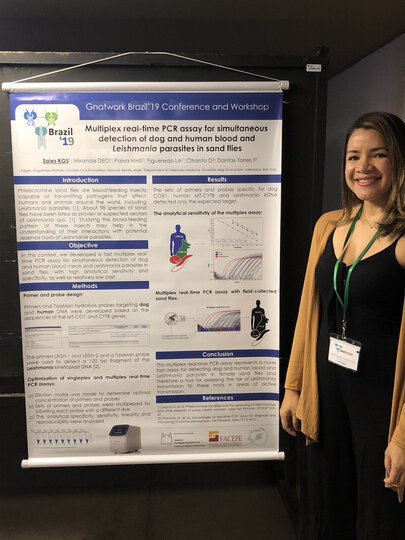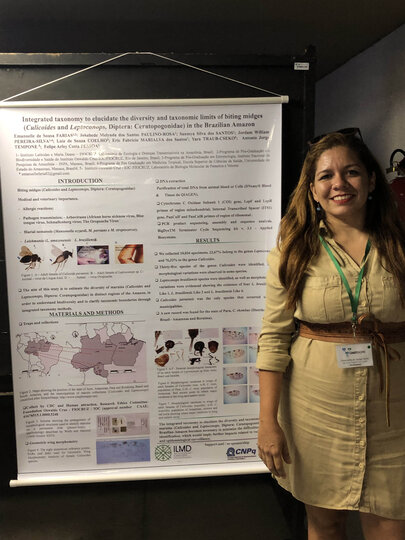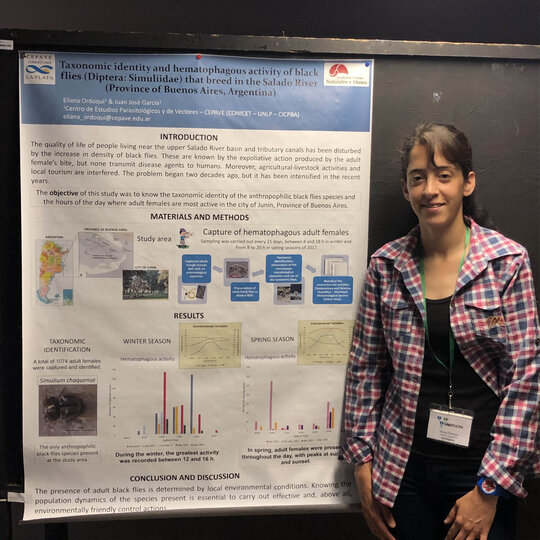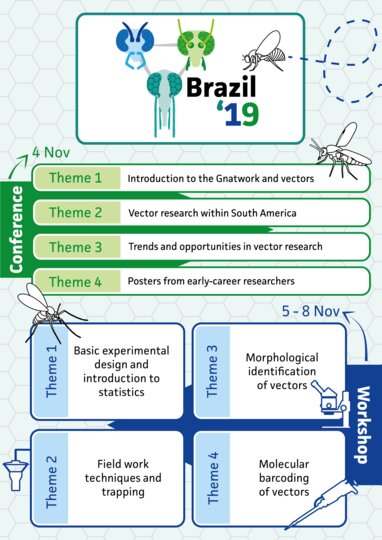Brazil '19
Our second international workshop, Brazil '19, was held on 4-8 November 2019 in collaboration with Universidade Federal De Minas Gerais. We had a very productive five days and met some incredible early-career researchers from Brazil, Argentina and Guatemala.
A conference day kicked off the week, which enabled 62 attendees from South America to network and share expertise around blackflies, sandflies and biting midges. Talks were given by 11 invited international experts across three themes: ‘vector research within South America’, ‘introduction to the Gnatwork and vectors’ and ‘trends and opportunities in vector research’. This day ended with a poster session and beer reception during which early-career delegates who had received travel bursaries presented a poster on their current work. The standard of the posters was very high and we would like to thank the participants for the huge amount of effort that went into them.
The 28 early-career delegates spent the remainder of the week in both theoretical and practical workshops, to develop the essential skills needed to work with biting midges, blackflies and sandflies. Five scientists from renowned international research institutes joined experts from Pirbright and UFMG to run the programme. The course was designed to guide participants sequentially through each stage of running a field experiment. Starting with basic experimental design, the workshop included sessions on vector biology, trapping techniques, molecular identification of vectors and finished with a session on how to analyse trap data. Dr Simon Carpenter, concluded the week by conducting interviews with the participants to identify barriers to research experienced in their home countries, such as funding, facilities and career progression.
“The Gnatwork aims to break down these barriers by facilitating the partnership between research groups from Brazil, Argentina and Guatemala with leading research groups in the United Kingdom, France and Bangladesh. The partnership will help to identify further sources of funding for projects, which could support early career researchers to gain access to further training at centres of excellence or to allow experienced researchers to continue working in research centres in developing countries” said Dr Maria Isabel Maldonado Coelho Guedes from UFMG.
More photos from Professor Bob Cheke can be seen here
Poster awards
During the conference, recipients of Gnatwork early-career travel bursaries presented posters on their current research. The invited trainers commented on the high quality of all of the posters, with special mention given to the following four posters:
Kamila Gaudêncio da Silva Sales (Poster 6)
Multiplex real-time PCR assay for simultaneous detection of dog and human blood and Leishmania parasites in sand flies
Débora Elienai de Oliveira Miranda (Poster 9)
Course of infection by Leishmania (Viannia) braziliensis in the presence of salivary gland homogenates from Migonemyia migonei
Emanuelle de Sousa Farias (Poster 16)
Integrated taxonomy to elucidate the diversity and taxonomic limits of biting midges (Culicoides and Leptoconops, Diptera: Ceratopogonidae) in the Brazilian Amazon
Eliana Ordoqui (Poster 17)
Taxonomic identity and hematophagous activity of black flies (Diptera: Simuliidae) that breed in the Salado River (Province of Buenos Aires, Argentina)
The full conference booklet, including all poster abstracts, can be downloaded from the sidebar.

